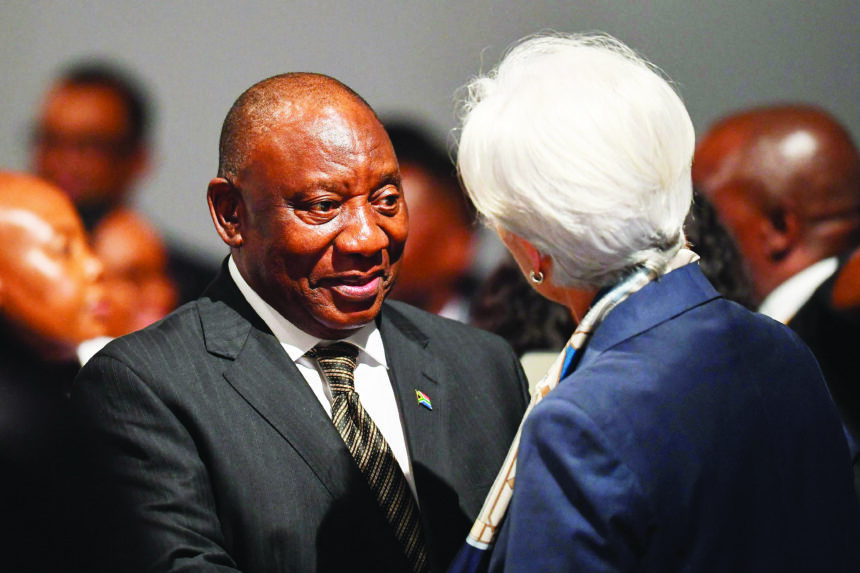CAPE TOWN – The erosion of multilateralism threatens global growth and stability, South African president Cyril Ramaphosa warned at a G20 finance meeting in South Africa marked by the absence of the United States (US) treasury secretary.
Two days of talks of finance ministers and central bank governors from the world’s leading economies opened a week after a meeting of G20 foreign ministers was snubbed by US secretary of state Marco Rubio, who complained of its “anti-Americanism”.
“The erosion of multilateralism presents a threat to global growth and stability,” Ramaphosa said in his opening address.
He added: “At this time of heightened geopolitical contestation, a rules-based order is particularly important as a mechanism for managing disputes and resolving conflict. Multilateral cooperation is our only hope of overcoming unprecedented challenges, including slow and uneven growth, rising debt burdens, persistent poverty and inequality, and the existential threat of climate change”.
South Africa this year holds the rotating G20 presidency and has chosen the theme “Solidarity, Equality, Sustainability”.
US secretary of treasury Scott Bessent said on 20 February that he would not attend the Cape Town meeting because he was too busy.
Just days before, Rubio had accused the G20 hosts of an “anti-American” agenda.
It followed criticism from president Donald Trump about land reforms in South Africa aimed at redressing inequalities perpetrated during the apartheid era.
“South Africa is doing very bad things. Expropriating private property. Using G20 to promote ‘solidarity, equality and sustainability… My job is to advance America’s national interests – not waste taxpayer money or coddle anti-Americanism,” Rubio wrote on social media
The G20 brings together the world’s leading economies to discuss international economic and financial stability.
It includes 19 countries and the African Union and the European Union which together represent around 85% of global GDP. -Nampa/AFP


